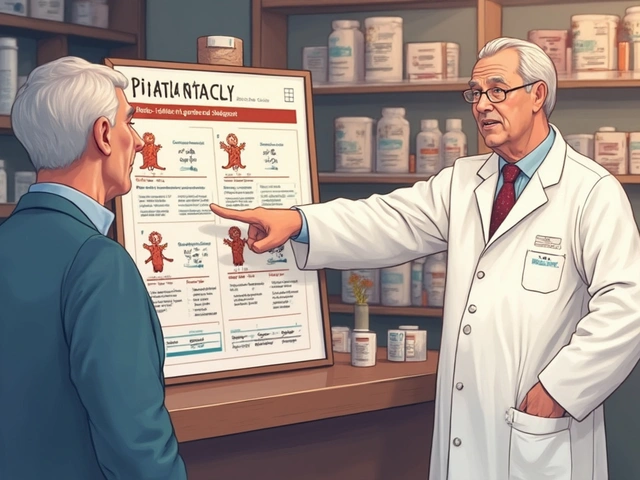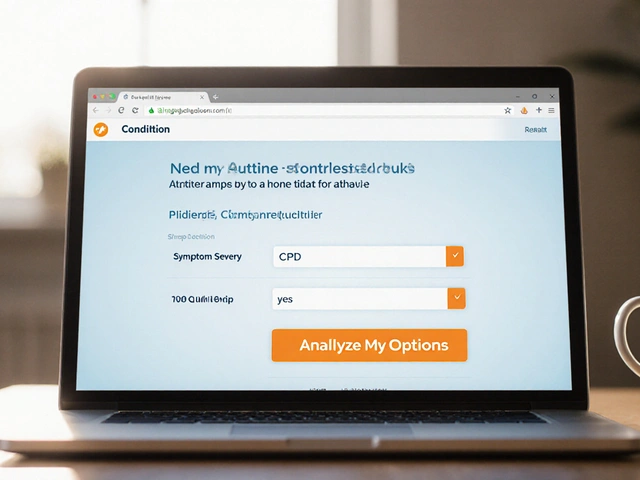Prevention: Practical Steps to Stay Healthy and Use Medicines Safely
Want to avoid illness and medication mistakes? Prevention isn’t fancy — it’s a set of small, consistent choices. This page brings clear, useful tips on everyday prevention: staying active, boosting immunity, managing chronic conditions, and buying medicines without risking your health.
Everyday habits that actually help
Move a little each day. Even short, regular walks lower blood pressure and support heart health, especially if you’re on meds like Lisinopril-HCTZ. When you exercise, watch for lightheadedness or dizziness — those can mean your blood pressure is dropping too low. Drink water, sleep well, and choose whole foods: nuts, beans, and vegetables deliver healthy fats and phytosterols that protect your heart. For example, chestnuts add fiber and fewer calories than many other nuts, making them a good snack swap.
Boost immune defenses with practical choices. Get enough Vitamin D through safe sun exposure or a modest supplement if levels are low. Garlic supplements (like Lasuna) can help some people with mild immune support and circulation — but don’t expect a miracle. If you’re pregnant, nursing, or on blood thinners, ask your clinician before starting any supplement.
Medication safety and smart shopping
Taking meds safely prevents harm. Know what you take and why. Learn common interactions — for example, sildenafil and certain nitrates shouldn’t be combined. If a drug affects your heart, like some benzodiazepines or psychiatric meds, check with a cardiologist if you have heart disease. Watch for side effects and keep a current medication list for every doctor visit.
Buying meds online? Use checks. A legit pharmacy shows a physical address, requires a prescription for Rx drugs, and has clear contact info. Avoid sites that sell controlled drugs without a prescription or offer unbelievably low prices with no paperwork. Articles on this site review online pharmacies and list safety tips so you can spot red flags and find trusted sellers.
For infections, don’t pressure prescribers for antibiotics. Know when antibiotics like azithromycin (Zithromax) are helpful — bacterial infections — and when they’re not, such as viral colds. Using antibiotics only when needed reduces side effects and prevents resistance.
If you use inhalers for asthma or COPD, learn your options. Combination inhalers (ICS/LABA) differ in onset and side effects. Talk to your pharmacist about switching safely if cost or side effects are an issue — there are several alternatives that can control symptoms while reducing risks.
Finally, prevention includes planning: store medicines safely, check expiration dates, and have emergency contacts listed. If you’re switching or stopping a drug, do it with medical guidance. Small choices — safe shopping, proper use, sensible lifestyle tweaks — add up to fewer hospital visits and better daily life.
Explore the tag articles below for specific guides on supplements, medication alternatives, safe online pharmacies, and condition-specific prevention tips. Pick one change this week and build from there.
3
Hyponatremia in the Elderly: Risks, Prevention, and How to Manage It
Hyponatremia can sneak up on the elderly, leading to confusion, fatigue, and even more serious health issues. This article dives into why older adults are more vulnerable to this condition, how to spot the signs early, and what steps can be taken to prevent and manage it effectively. From understanding the role of sodium in the body to recognizing risky medications, we explore practical tips for maintaining electrolyte balance. Read on for essential insights crucial for safeguarding the health and well-being of aging loved ones.
Latest Posts
Popular Posts
-
 Meniere’s Diet: How Sodium Restriction and Fluid Balance Reduce Vertigo and Hearing Loss
Meniere’s Diet: How Sodium Restriction and Fluid Balance Reduce Vertigo and Hearing Loss
-
 Enteral Feeding Tube Medication Safety: Compatibility and Flushing Protocols Explained
Enteral Feeding Tube Medication Safety: Compatibility and Flushing Protocols Explained
-
 Magnesium Supplements and Osteoporosis Medications: What You Need to Know About Timing
Magnesium Supplements and Osteoporosis Medications: What You Need to Know About Timing
-
 Stinging Insect Allergy: What Venom Immunotherapy Really Does for You
Stinging Insect Allergy: What Venom Immunotherapy Really Does for You
-
 OTC Heartburn Medications: Antacids, H2 Blockers & PPIs Explained
OTC Heartburn Medications: Antacids, H2 Blockers & PPIs Explained



